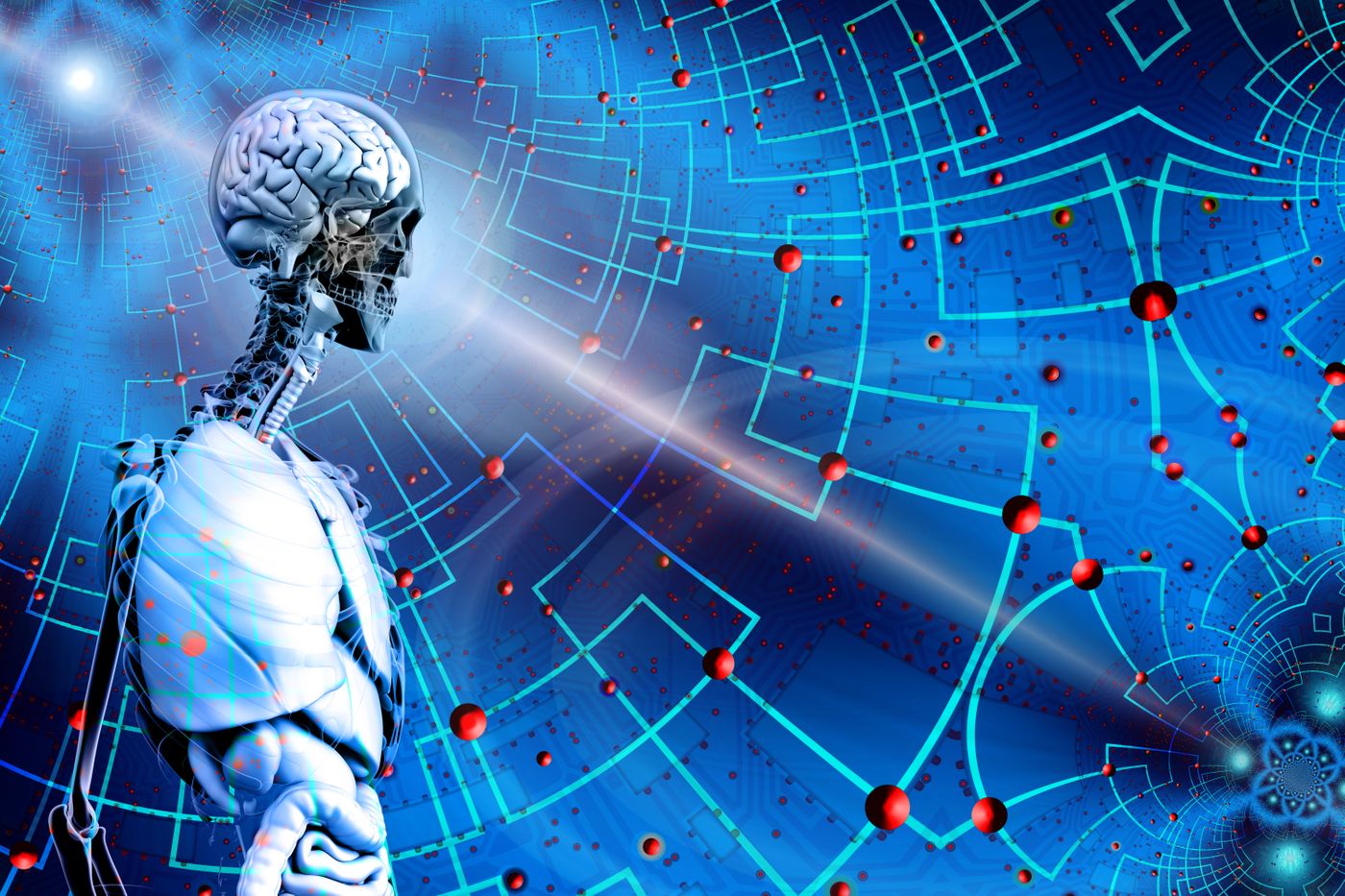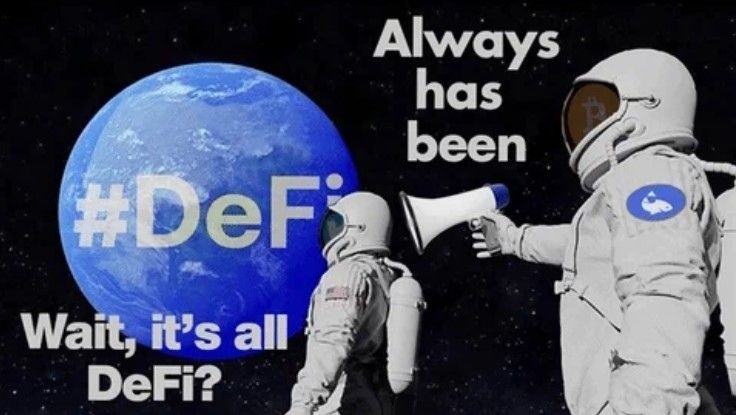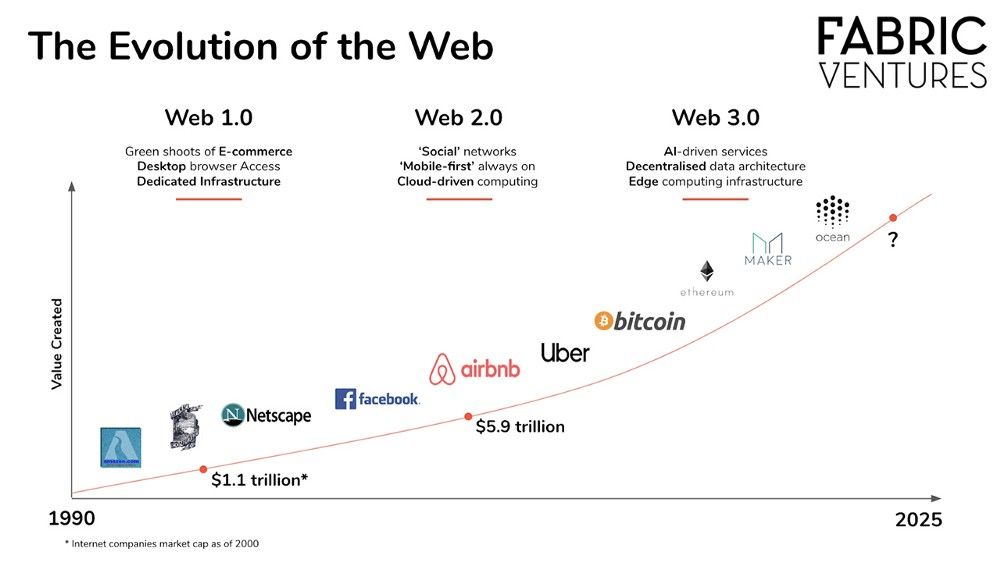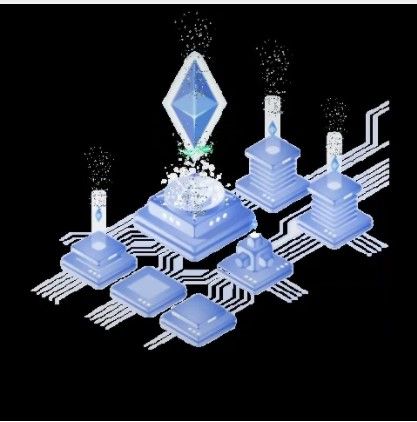What is Web 3.0 ? Does it matter?
Anyone involved in a blockchain project may be interested in any specific application of decentralized technology.
The focus is on this area because Web 3.0 will allow the Internet to exist in the way it originally existed, as a truly open means of providing an almost limitless exchange of information. Basically it will be a higher-level version of the internet we already use.

Because the internet has become such an important aspect of all of our lives. In general, decentralization will take control away from a central authority and give that control to everyone, ultimately promoting equality, a little democratic feel XD.
Web1.0
Not much to say, just a general website, period. Well, static pages are more common than pages using dynamic HTML, and the content comes from the file system rather than the database system. Web sites in Web 1.0 had limited functionality. Web 1.0 was much simpler because content on the Internet was created by a few people.
Web 2.0
It's the internet we use today, the rise of using apps, platforms that support self-publishing (like WordPress and Squarespace), and social media platforms (like Facebook, Instagram, LinkedIn, and YouTube), interactive experiences and user-generated content, everyone Anyone can be a creator.
Simply put, Web 2.0 transitioned to the "Internet as a platform" philosophy.
Web 2.0 is driven by the advent of mobile, social, and the cloud.
Web 3.0
It is mainly built on three new technological innovation levels: edge computing, decentralized data network (Dapp) and artificial intelligence (AI) .
Features: Decentralized
The data network makes it possible for these data generators (from an individual's personal health data to a farmer's crop data or a car's location and performance data) to sell or exchange their data without losing ownership control, giving up privacy or relying on third parties middlemen. Thus, decentralized data networks can bring the entire long tail of data generators into the emerging “data economy.” Web 3.0 enables the distributed users and machines of the future to interact with data, value and other counterparties through the foundation of a peer-to-peer network without the need for third parties. The result: a composable human-centred and privacy-preserving computational fabric for the next wave of networks.

Web 3.0 uses AI artificial intelligence
The use of artificial intelligence will make data available to users faster and the data provided will be more relevant to each user. We are starting to see this technology being used on the Internet through algorithms used to recommend products, videos, etc. to users based on their previous searches. However, the technology in Web 3.0 will be more advanced.

Why is Web 3.0 important?
For a long time, a handful of large corporations dominated the internet, meaning individuals had less control. These organizations ask us for our personal data in exchange for access to their platforms and services, which they then monetize and monetize.
If you care about the possibility of regaining ownership of personal data, then you should care about Web 3.0. If you want to use the Internet that provides equal benefits to all users, you'll be excited about Web 3.0. Also, if you understand the benefits of decentralization, it's time to realize the importance of Web 3.0. Web 3.0 is in many ways the embodiment of this vision.
This is important because:
- Society can increase efficiency by disintermediating industries, reducing rent-seeking third parties, and returning this value directly to users and suppliers in the network.
- With new networks of more adaptive peer-to-peer communication and governance relationships between participants, organizations can be inherently more flexible to respond to change.
- People, businesses and machines can share more data with more privacy and security guarantees
- Platform-dependent risks we can observe through direct data to adapt to future entrepreneurial and investment activity
- Own your own data and digital footprint by using provable data scarcity and tokenized digital assets
- Through "modern mutual" ownership and governance of these new decentralized intelligent systems and complex and dynamic systems of economic incentives, network participants can collaborate to solve previously intractable or "decentralized" problems

The coming wave of Web 3.0 goes well beyond the initial usage paradigm of cryptocurrencies.
With the rich interactions now possible and globally available counterparties, Web 3.0 will use efficient machine learning algorithms to cryptographically connect data from individuals, companies, and machines, leading to the emergence of entirely new markets and related business models. The result is akin to a "return to the global village" - a daily immersion in the human-centered, human- and machine-skills from which we use to benefit, but now delivered and highly personalized interactions on a global scale and supported by an ever-increasing number of humans and machines specialized.
Random thoughts and random prophecies
The biggest impact of Web3.0 technology is a certain powerful country, because it is no longer subject to central monitoring, and can freely distribute personal free will and challenge the authority of the channel. The media will not only be mobile phones, various wearable projection devices, plus Web3.0 Structure the network, we can use digital bread to put information 8/15 to kill Tartar. When you don't want to roll it up as a dish, it's the farmers and workers who pick up the hoe and shovel and let the high wall fall XDDD. The reservation time on the chart is 2025. Everyone who is rushing for money, food and people...there are still 4 years to prepare...
- https://medium.com/fabric-ventures/what-is-web-3-0-why-it-matters-934eb07f3d2b
- https://www.newsweek.com/what-web-30-why-should-youcare-1627250
Like my work? Don't forget to support and clap, let me know that you are with me on the road of creation. Keep this enthusiasm together!

- Author
- More